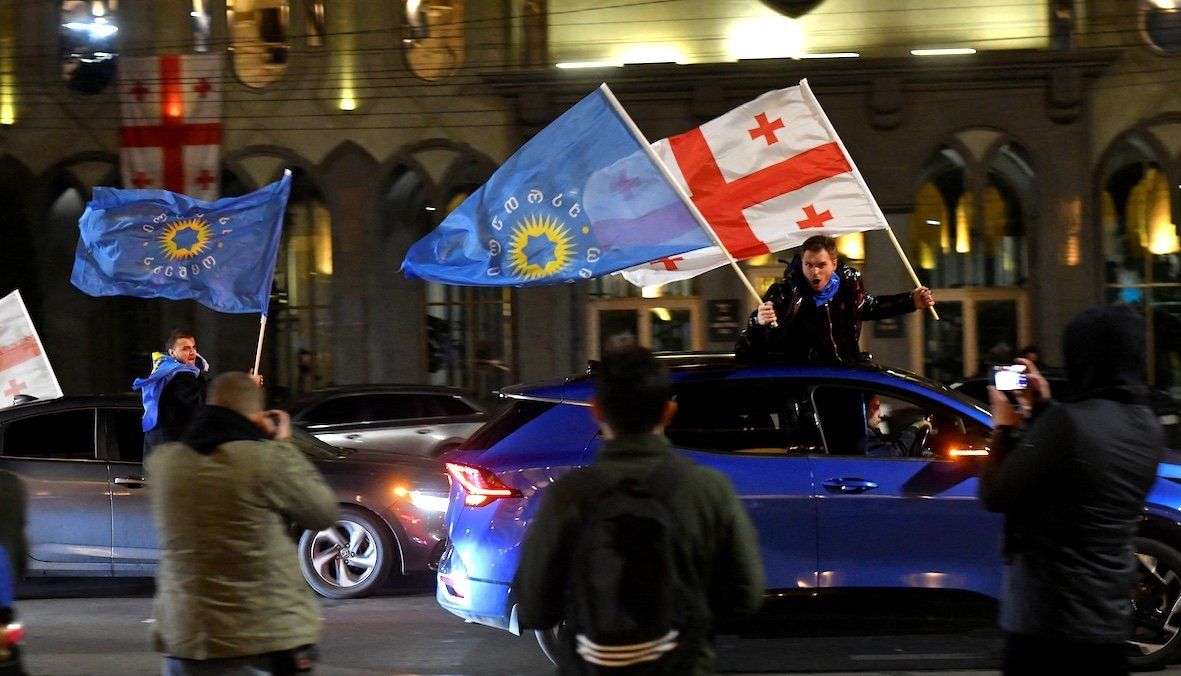Opposition coalitions in the country of Georgia and its pro-Western President Salome Zourabichvili are accusing the incumbent Georgian Dream of stealing Saturday’s election, calling the results “falsified” and a “constitutional coup.” While the country’s electoral commission declared Georgian Dream the winner with 54% of the vote, several exit polls predicted a win for the opposition. Three monitoring organizations, including the Organization for Security and Cooperation in Europe, cited irregularities such as vote buying, double voting, hate speech, and Russian disinformation.
“For now, Western governments are cautious in outright rejecting the election results, instead calling on Georgia's Central Election Commission to conduct investigations to reveal the violations,” says Tinatin Japaridze, a Georgian-born analyst at Eurasia Group. But it is clear to everyone – including the Georgian Dream's leadership – that without significant manipulations and voter intimidation, the ruling party would have failed to secure a decisive win.”
The results bode poorly for Georgia’s accession to the EU: While Georgian Dream has promised a path to membership – something 80% of Georgians support – its rhetoric has grown increasingly authoritarian, anti-Western, and pro-Russia and China.
“The European Council has vowed to assess the latest developments and determine the EU's next steps in its relations with Georgia next month. We can expect the country's EU accession process to remain halted indefinitely, even if the ruling regime continues to insist that they are still moving toward eventual EU membership,” says Japaridze.
The party’s founder, billionaire Bidzina Ivanishvili, who made his fortune in Russia in the 1990s, campaigned on keeping Georgia out of the war in Ukraine, and the party has proposed anti-LGBTQ+ laws mirroring those in Russia.
What’s next? Pro-western opposition leaders are planning protests and a Parliamentary boycott, similar to the five-month stalemate that followed Georgia’s 2020 election, which EU mediators eventually sorted out. But that’s not likely to happen in 2024: Georgian Dream has vowed to outlaw its opponents and pro-western groups.
“Despite pulling out all of the stops, the ruling party failed to garner enough votes to achieve a so-called constitutional majority in the parliament, which will make it very difficult for them to single-handedly amend the constitution, override presidential vetoes, and ban political opposition,” says Japaridze.
Meanwhile, Hungarian leader Viktor Orban announced a visit to Tbilisi on Monday – another sign that authoritarianism is gaining ground.
“President Zourabichvili has vowed to continue this battle, calling on those who believe Georgia's future is in Europe and not in Moscow's backyard to take to the streets starting tonight. Uncertainty about what happens next mixed with anger over a blatantly stolen election is a very potent motivator, especially for the youth.”
